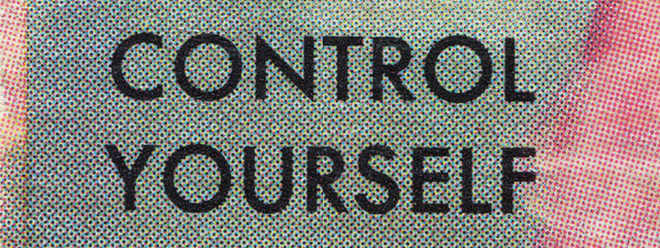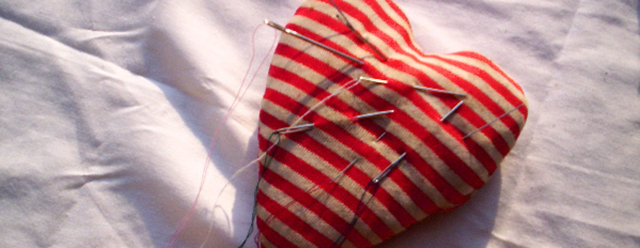
by Tara Joyce | Mar 19, 2015 | Cultural Creativity, Self/Business Growth

You’re not going to make the difference for me: I am.
I’m not going to make the difference for you: you are.
You and I, can not and do not need to save anyone from anything.
However ardently you believe that I would be happier and more satisfied following your lead, you must resist the temptation to try to change me. You can not heal me. Only I can. There is a reason for where I am right now, and how you feel I “should” be or “could” be is not really relevant, helpful nor right.
No matter the richness of the life you’ve built, you are still not qualified to speak on behalf of the/my greater source. No matter what you feel you know, nor what I feel you know, you do not know better. What you know will never surpass what you do not know. Your understanding of my life must always be limited.
It is a disservice to me, and to you, to make assumptions about my intentions, preferences, and goals. Respect my right to be myself. If you find yourself feeling that you need to change me and save me, if you’re feeling that perhaps you know better, it’s an opportunity to look at what needs healing within. How can you really know better? What are you overcompensating for?
Just as my life is about healing and wholing myself, so too is yours. We both have the right to do so, at our own pace, without interference. In doing your own work, and allowing me to do mine, you’re making all the difference. For your changing the one person you actually can: you.
photo credit: wackystuff

by Tara Joyce | Jan 27, 2015 | Cultural Creativity, Self/Business Growth

I received this intriguing question recently from a reader; “Do you know where this (Cultural Creative) concept stands today?”
Where do we, the Cultural Creatives, stand today? From what I observe, we, and our ways of being and doing, are growing quietly. More and more of us are learning about “Cultural Creativity” and resonating with it, and feeling inspired to more deeply connect with their values and others who share them.
I notice that “Cultural Creativity” seems to have grown far larger than the words Paul Ray used (in 2000) to describe this growing culture and movement. There are many words, concepts, and ideas to communicate our ways of being and doing. The philosopher, Ken Wilbur, in my mind has done the most to forward the cultural importance of our consciously growing community. He has written, taught and grown extensively the concept of Integral Culture (and Theory) which is another, and more deeply explored, concept identifying the Cultural Creative way of being and doing. There are schools of thought (an Institute) for Integral approaches to such disciplines as Politics and Ecology.
Personally, I had the pleasure of attending an Integral Coaching program a few year back. It was expanding… and interestingly, it was dominated by Canadian Government employees. It seems the government of Canada is embracing Cultural Creativity in their thinking and approaches. I find that truly exciting!
Beyond Wilbur’s work, I see our Creative Culture emerging everywhere I look. New/old, more conscious approaches to things emerge each day. I can see now what CC’s needed to acknowledge and recognize each other (in 2000, when Ray wrote the book) was a authentic means for connecting in a global way, so we could truly feel our weight and presence. We needed the web, and the time-space to learn and understand its ability to empower us. And now, fifteen years later, it’s old enough that we’re beginning to figure out how to truly connect with each other here.
What do you think?
Where do you feel our Cultural Creative movement?
Email me, I’d love to hear from you.
photo credit: Glyn Lowe

by Tara Joyce | Nov 21, 2014 | Cultural Creativity

Helpful creative feedback is encouraging, sensitive, honest, and constructive.
Creating is an arduous process that employs your very heart and soul. It is an act that leaves you, the creator, totally vulnerable to those who experience your creation. Helpful creative feedback comes from honouring this sacred creative space and meeting you, the creator, in it.
Helpful creative feedback is sensitive to the fact that you are doing your best, that your creation is not perfect nor is intended to be, and that what you truly desire is the opportunity to grow, express, and improve.
Helpful creative feedback is not about what I would do if I were you, or about what I want your expression to say or represent. Helpful creative feedback is about helping your creation to grow.
That doesn’t mean my creative feedback can’t share my negative experiences of your creation, but if your expression should anger me, it’s my responsibility to understand why it does, before I attempt to share those feelings with you, the creator, or direct them at your creation. When I do decide to share my feedback, positive and/or negative, it becomes helpful when I share it constructively, communicating in a way I would want to be spoken to should I have chosen to put the time, energy, and love into something enough to birth it into this world. Helpful creative feedback requires empathy for the creator and for the creation.
The amount of help my creative feedback provides to you depends on the depth of understanding I have about my own experience, and about how it’s not THE TRUTH. My experience is simply my perspective, nothing more. It’s just one perspective for you and your creation to learn and grow from. It holds no more weight than that. With this knowledge and humility in hand, I can be truly helpful to you, and provide you with the sensitive, honest, and constructive feedback you really need to grow.
photo credit: Josh Ardle

by Tara Joyce | Nov 11, 2014 | Cultural Creativity

If the pain is going to be there either way, why would I choose to feel it?
If I feel it, I can actually heal it. If I don’t feel it, I can not know its true state, and I can not start to heal it.
Whether I like it or not, feeling my pain fully is necessary for my healing, for my whole-ing.
I can not reduce my pain when I don’t acknowledge it. I can not feel more whole and healed when I deny parts of my experience.
When I want to hide from my pain, I remember that in facing it, I start to heal it. Stuffing it down only guarantees I will hold onto these feelings longer.
My pain is inevitable but my suffering is optional.
So I practice feeling it and not fearing it. I practice believing I can face and handle my pain. And ever single time I do, I find I’m right.
photo credit: Lein C. Lau

by Tara Joyce | Oct 27, 2014 | Cultural Creativity, Pay What It's Worth Pricing

I like to think about money as an idea in the form of credit. To get in the money game, I need to build up my credit. To build up my credit, I need to work on my inner and outer relationship with my self and money.
My Outer Credit Work:
- identifying & communicating the value I offer (marketing my self and my business)
- growing my wealth (creating opportunities for higher pay and more abundance)
- caring for my wealth (managing my money and my self)
My Inner Credit Work:
- connecting with the value I offer and the abundance of wealth I possess (transforming my thoughts, feelings, beliefs, attitudes, and actions about money and my self)
As I practice with Pay What It’s Worth and not setting prices, I’m noticing the system naturally supports me in doing my inner and outer work. It supports me in clearly identifying where I still have work to do in improving the quality of my thoughts about my self and money. When I feel something isn’t working in my business and/or in an exchange with my customer, I have an opportunity for inner work and outer work. My business is a mirror for my relationship with my self and money, and my customer is a powerful guide in showing me what is working in this relationship, and what is not. My customer’s feedback and behaviour in our business exchange, and my satisfaction with it, highlights where my thoughts and actions are adding value and where they are not. How am I building my credit? How am I taking from it? If I don’t feel fairly valued, I explore how I am creating this imbalance in my relationship and I work to correct it.
Psychology is to money what an engine is to a car, and my motives, my drivers to action, determine my results. My thoughts about money determine where I go with it, the quality of my ride and my response, and how fast I travel. If I want to live and love abundantly, I must be working on thinking abundantly. As I work at increasing the quality of my thoughts, and in turn my actions, my wealth increases. As I learn to value my Self and how I am of service more wholly, my customer naturally does too. This is the work and the reward of building my credit.
photo credit: Matt Jiggens










